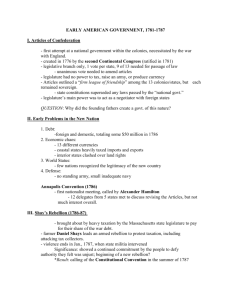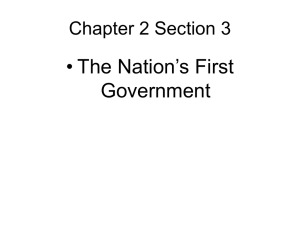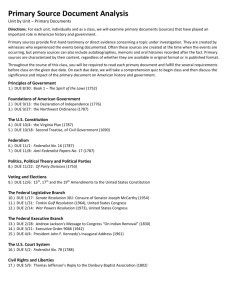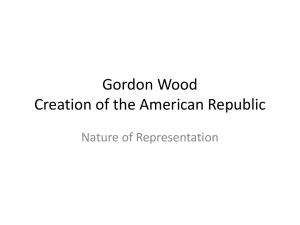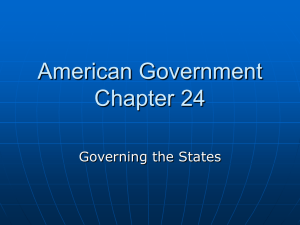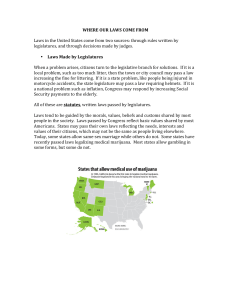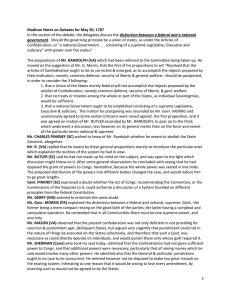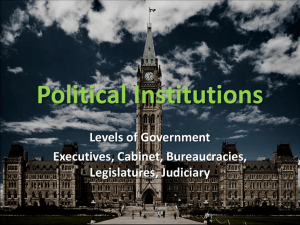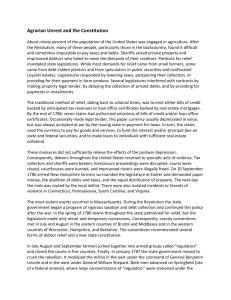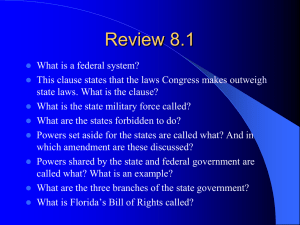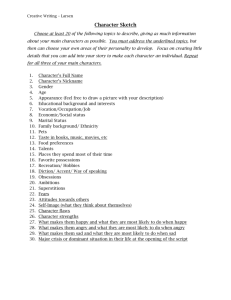Study Guide Part IV notes
advertisement
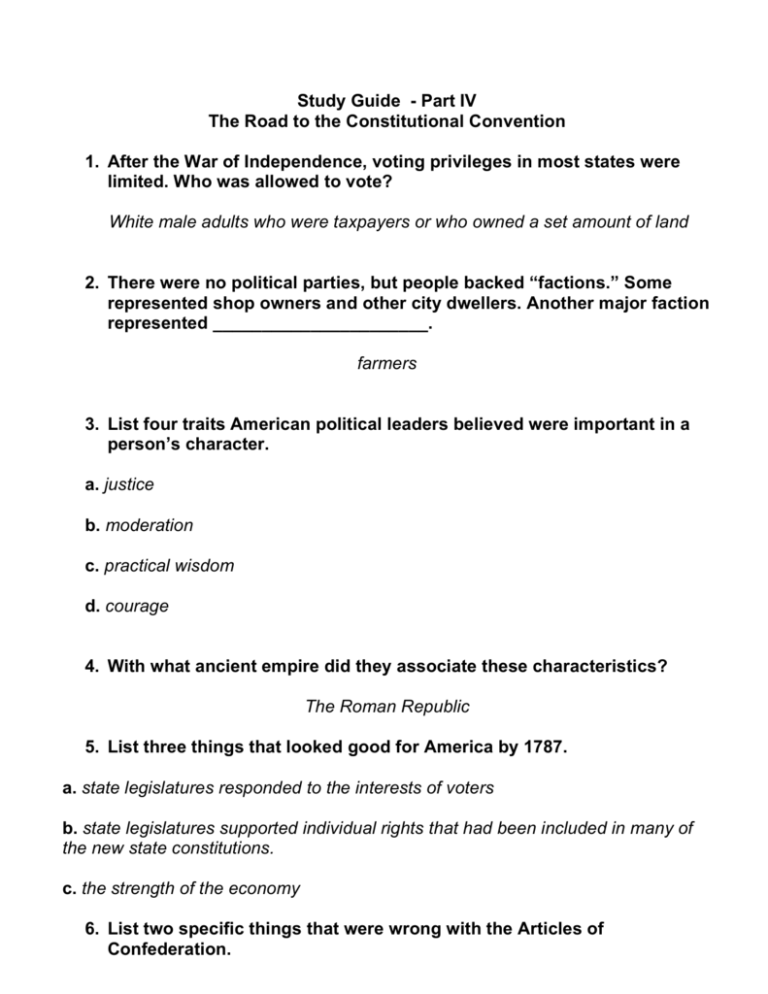
Study Guide - Part IV The Road to the Constitutional Convention 1. After the War of Independence, voting privileges in most states were limited. Who was allowed to vote? White male adults who were taxpayers or who owned a set amount of land 2. There were no political parties, but people backed “factions.” Some represented shop owners and other city dwellers. Another major faction represented ______________________. farmers 3. List four traits American political leaders believed were important in a person’s character. a. justice b. moderation c. practical wisdom d. courage 4. With what ancient empire did they associate these characteristics? The Roman Republic 5. List three things that looked good for America by 1787. a. state legislatures responded to the interests of voters b. state legislatures supported individual rights that had been included in many of the new state constitutions. c. the strength of the economy 6. List two specific things that were wrong with the Articles of Confederation. a. finances – Congress had no authority to raise revenue (taxes) for operations of the national government b. foreign affairs – Congress could negotiate treaties with foreign governments but couldn’t enforce them. 7. What issue led several states to realize that the Articles needed to be revised? A border dispute between Maryland and Virginia about the Potomac River, their common border. No strong central government to address issues such as this. Needed to take into consideration trade and commerce. 8. Who was angry at whom during Shays’s Rebellion? Why? Small farmers in western Massachusetts were angry at Boston merchants. Wanted the Massachusetts legislature to stop state courts from foreclosing on their lands. Foreclose means to take someone’s land because they fail to pay their debt owned on the land. 9. Not everyone felt good about the meeting in Philadelphia in 1787. Give two examples of discontent. a. some people feared the convention would strengthen the national government at the expense of states’ rights and individual liberties. b. Delaware wanted to protect the ability of each state to have one vote in the national legislature also, issues with taxes, slavery, and voting rights.
